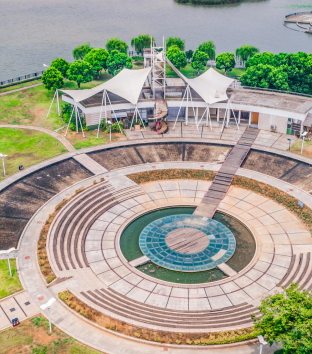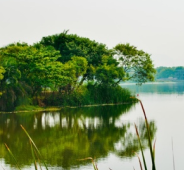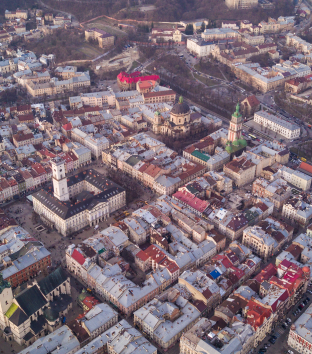Participants gather information about Nigeria
Abuja, the capital city of Nigeria, was purpose-built in the 1980s to serve as the country’s political center and replace Lagos, which remains the commercial hub. Situated in the heart of Nigeria, it is known for its well-planned layout and beautiful modern architecture. Abuja is distinct for its wide boulevards, lush green spaces, and impressive landmarks, embodying a quieter and more orderly atmosphere compared to the bustling Lagos. The city is an embodiment of Nigeria’s diversity, with people from different ethnic backgrounds converging for administrative and diplomatic purposes.
For tourists, Abuja offers a range of attractions that highlight both its natural beauty and its cultural significance. The Zuma Rock, a massive monolith, is a famous sight north of the city and a powerful symbol depicted on the national currency. The Millennium Park, the largest public park in Abuja, provides a serene environment ideal for picnics and leisurely walks. For those interested in local arts and history, the National Museum in Abuja offers insights into Nigeria’s rich heritage. Additionally, the Jabi Lake Mall alongside Jabi Boat Club allows visitors to engage in leisure activities such as boating on the lake, making Abuja not just a center of political activity but also a place for relaxation and cultural exploration




